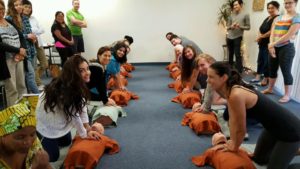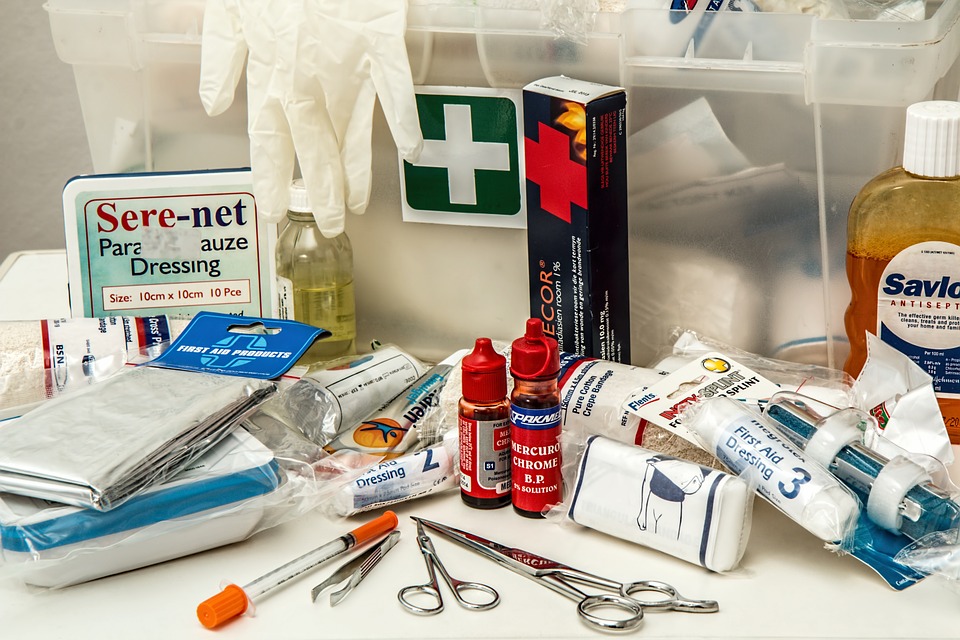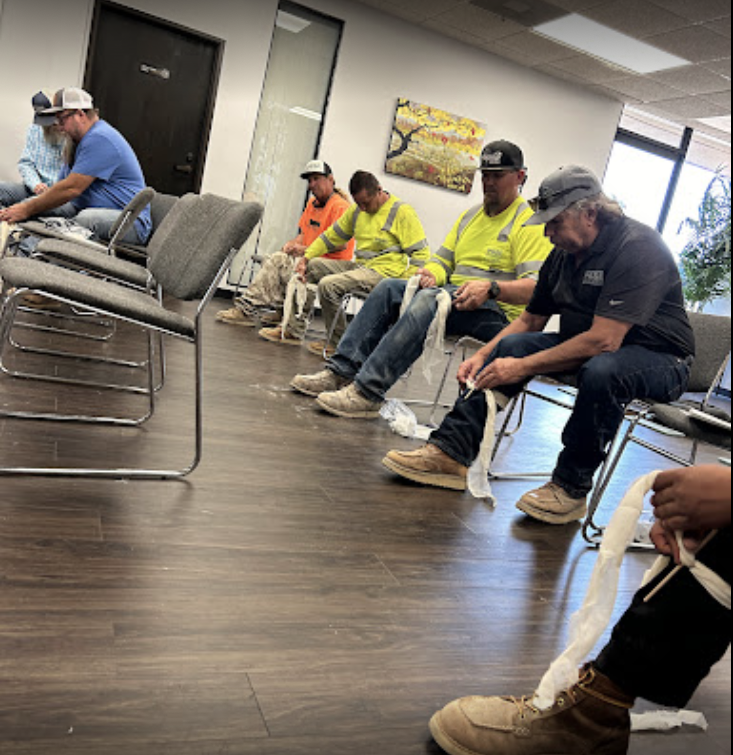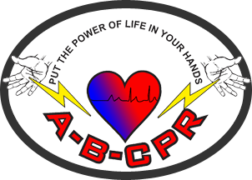Get Your AHA-Approved BLS Certification in San Diego
Book A Class Today Starting at
$75
This class is for
Healthcare provider, such as: EMTs, RNs, CNAs, and LVNs
This class is NOT for
Non-healthcare provider, such as: Daycare providers, personal trainers, coaches, school teachers, and construction workers
BLS CPR Certification for Healthcare Providers In San Diego
A-B-CPR’s BLS certification course is designed specifically for healthcare professionals, including EMTs, RNs, CNAs, and LVNs. This comprehensive Basic Life Support (BLS) training equips healthcare providers with essential life-saving skills and meets the American Heart Association (AHA) standards. Whether you’re new to the healthcare industry or need to renew your certification, this course will provide you with the expertise required to handle critical situations confidently.
BLS CPR Training Course Overview
Our BLS certification course is accredited by the American Heart Association (AHA) and provides a thorough understanding of CPR techniques for adults, children, and infants. The course includes:
-
- Adult, Child, & Infant CPR: Learn critical CPR techniques for healthcare settings.
- Two-Person CPR: Gain hands-on experience in team-based CPR.
- Airway Management: Understand the basics of airway control, including the use of bag valve masks.
- AED Training: Learn how to use an Automated External Defibrillator (AED) to restore a normal heart rhythm.
Cost:
-
- Full Course: $75 (includes the American Heart Association AHA manual)
- BLS Renewal Course: $59 (available for participants with a current or recently expired certification, up to 1 month expired)
All participants will receive the official AHA BLS for Healthcare Providers Certification upon successful completion, valid for two years.
You must claim your card from the AHA email sent after class!
Failure to claim your card within 6 months will cause AHA to delete your card! You will then have to take the class again.
Chose A Location To Book A Class Today!
Why BLS Certification Is Essential for Healthcare Providers
For healthcare professionals, BLS certification is a fundamental requirement, ensuring that you are prepared to respond in emergencies involving cardiac arrest, airway management, and other life-threatening situations. Healthcare providers are often the first to respond in emergencies, and having up-to-date BLS CPR certification is vital for delivering timely and effective care.
This certification is particularly crucial for:
-
- EMTs and Paramedics
- Registered Nurses (RNs)
- Certified Nursing Assistants (CNAs)
- Licensed Vocational Nurses (LVNs)
Certification Requirements and Course Length
To earn your BLS CPR certification, participants must:
-
- Complete the in-person course and pass both a written exam and a practical skills demonstration.
- Demonstrate proficiency in performing CPR on adults, children, and infants, as well as using an AED and managing airways.
Course Length: The course typically lasts 4 hours, depending on class size and participant interaction. All participants will receive an AHA manual during the class, which is included in the course fee.
Our Reviews

This is the best course for completing your CPR, AED, First Aid and more! They blend the classes with online learning and hands-on training. The instructors are knowledgeable and passionate about the duty of care and presenting in a fun way. Get certified!
-Jay W.

I loved our training. Our teacher was so funny and helped us learn so much. I loved a lot in this course. I would recommend anyone to learn CPR and first aid course.
-Erin B.

Our company gets recertified for CPR certificate every year. Our facilitator was excellent and very knowledgeable about CPR. Very friendly and to the point. I recommend highly.
-Jaun F.
BLS Certification: What You’ll Learn
During the Basic Life Support (BLS) training at A-B-CPR, you will acquire life-saving skills essential for healthcare providers. Here’s what you’ll master:
-
- CPR for Adults, Children, and Infants: Learn how to perform CPR in different scenarios, including one-person and two-person techniques.
- Airway Management: Master airway control using bag valve masks and other essential airway management tools.
- AED Usage: Understand the proper use of an AED in a healthcare environment, where fast, accurate responses are critical.
- Team-Based Resuscitation: Learn how to effectively work with other healthcare providers in emergency situations to maximize survival rates.
Chose A Location To Book A Class Today!
Frequently Asked Questions (FAQs)
What is BLS Certification?
BLS (Basic Life Support) Certification is a course designed to teach essential life-saving skills, including CPR (Cardiopulmonary Resuscitation), AED (Automated External Defibrillator) use, and choking relief for adults, children, and infants. It is required for healthcare professionals and first responders.
Who needs BLS Certification?
BLS Certification is required for:
- Nurses, doctors, and medical students
- EMTs, paramedics, and first responders
- Dentists and dental assistants
- Respiratory therapists
- Hospital and clinic staff
If you work in a medical or emergency response field, BLS Certification is essential.
How long does it take to complete a BLS Certification class?
Our in-person BLS Certification class typically takes 4-5 hours to complete. The course includes hands-on skills practice, real-life scenarios, and a final skills assessment.
How long is a BLS Certification valid?
BLS Certification is valid for 2 years. After this period, you will need to take a renewal course to keep your certification current.
Where can I take BLS Certification classes in San Diego?
A-B-CPR offers in-person BLS Certification classes at two convenient locations:
- Mission Valley
- Oceanside
We proudly serve all of San Diego County, including La Jolla, Downtown, and North County.
How do I register for a BLS Certification class?
You can easily register for a class online through our website or call us at (619) 281-3304. Choose the location and time that works best for you, and we’ll handle the rest!
Will I receive an AHA-approved BLS Certification card?
Yes! Upon successful completion of the course and skills assessment, you will receive an American Heart Association (AHA)-approved BLS Certification card, which is widely recognized by employers and organizations.
What happens if my BLS Certification expires?
If your BLS Certification expires, you will need to complete the full BLS course again. We recommend renewing your certification before it expires to ensure uninterrupted compliance with your employer’s requirements.
Why choose A-B-CPR for BLS Certification in San Diego?
At A-B-CPR, we offer:
- Experienced, AHA-certified instructors
- Small class sizes for personalized attention
- A Local Buisness That Is Family Owned And Opperated. Proudly Serving San Diego for over 25 years.
- Two convenient San Diego locations
- Fast, same-day certification upon successful completion

